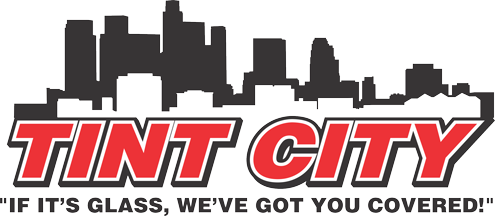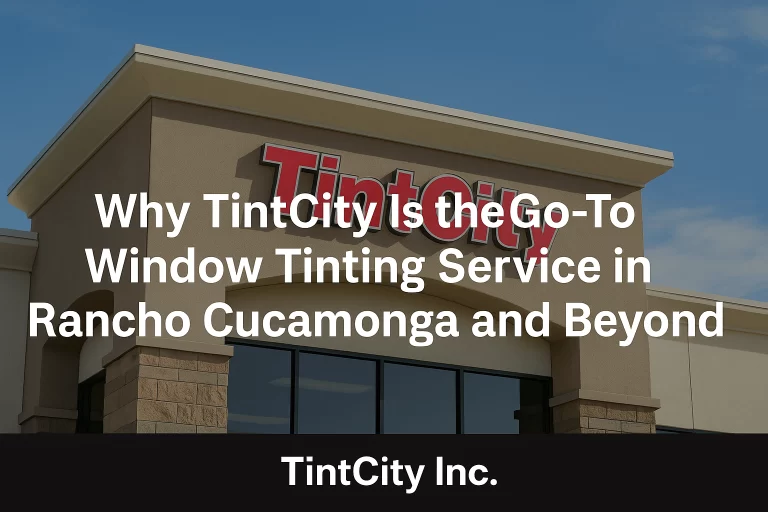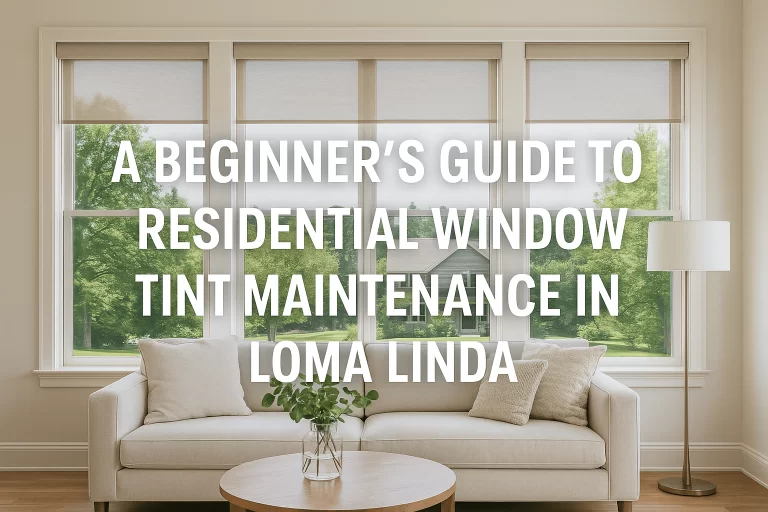What is Residential Window Tinting?
Residential window tinting is the process of applying a thin, transparent film to the interior or exterior surfaces of home windows. This film serves several purposes, including reducing heat gain, blocking harmful UV rays, enhancing privacy, and improving energy efficiency. Window tints come in various shades, from virtually clear to deeply tinted, allowing homeowners to customize the level of light transmission and privacy desired.
Purpose of Residential Window Tinting
Window tinting offers several benefits for residential properties:
- Energy Efficiency: By blocking a significant portion of the sun’s heat, window tints can reduce the workload on air conditioning systems, leading to lower energy bills and a more eco-friendly home.
- UV Protection: The ultraviolet rays from the sun can cause fading and damage to interior furnishings, flooring, and artwork. Window tints act as a barrier, protecting your belongings from premature aging and discoloration.
- Privacy and Glare Reduction: Tinted windows provide an added layer of privacy by making it more difficult to see inside from the outside. They also reduce glare, creating a more comfortable living environment.
- Safety and Security: Some window tint films are designed to hold glass shards together in the event of breakage, enhancing safety and deterring potential burglars.
Types of Residential Window Tints
There are several types of window tints available for residential applications, each with its own unique properties and benefits:
- Dyed Window Tints: These are the most common and affordable option, using dyes or pigments to absorb and reflect a portion of the sun’s rays.
- Metalized Window Tints: These films contain microscopic metallic particles that reflect heat and UV rays, providing superior heat rejection and energy efficiency.
- Ceramic Window Tints: Made from non-conductive ceramic particles, these tints offer excellent heat rejection and UV protection while maintaining a high level of visibility and clarity.
- Hybrid Window Tints: Combining the benefits of different technologies, hybrid tints offer a balance of heat rejection, UV protection, and optical clarity.
- Security Window Tints: Designed with thick, durable films, security tints can hold glass shards together in the event of breakage, enhancing safety and deterring break-ins.
Choosing the right type of window tint depends on your specific needs and preferences, such as desired privacy levels, energy efficiency goals, and budget considerations.
Energy Efficiency with Residential Window Tinting
Window tinting is an excellent way to improve the energy efficiency of your home. During the hot summer months, the sun’s rays can cause your home to heat up, leading to higher energy bills as your air conditioning system works overtime to maintain a comfortable temperature. By installing window tints, you can block a significant portion of the sun’s heat, reducing the strain on your cooling system and lowering your energy costs.
In addition to blocking heat, window tints can also help retain heat during the colder months, further enhancing your home’s energy efficiency. The tinted windows act as an insulating barrier, preventing heat from escaping and reducing the workload on your heating system. This dual-purpose functionality makes window tinting a cost-effective solution for year-round energy savings.
Overall, residential window tinting can significantly reduce your energy consumption, leading to lower utility bills and a more eco-friendly home. By minimizing the workload on your HVAC system, you’ll not only save money but also extend the lifespan of your heating and cooling equipment.
Dyed, Metallized, Ceramic & Hybrid Security Films
When it comes to residential window tinting, there are several types of films to choose from, each offering unique benefits. Dyed films are the most basic and affordable option, providing excellent heat rejection and UV protection. However, they may fade over time and offer limited privacy.
Metallized films, on the other hand, are highly effective at blocking heat and UV rays while also providing a sleek, mirrored appearance for enhanced privacy. These films are durable and long-lasting but can interfere with electronic signals and remote controls.
Ceramic window tints are the premium choice, offering superior heat rejection, UV protection, and clarity. They are non-metallic, making them signal-friendly, and their advanced technology ensures long-lasting performance without fading or discoloration.
Hybrid films combine the best features of different film types, offering a balance of heat rejection, UV protection, privacy, and clarity. These versatile films are an excellent choice for those seeking a well-rounded solution.
Security films are a specialized category designed to enhance safety and protect against potential threats. These thicker films hold glass shards together in the event of breakage, preventing injury and deterring break-ins. They also provide excellent heat rejection and UV protection, making them a comprehensive solution for homeowners seeking enhanced security and energy efficiency.
Considerations: Climate, Exposure, Privacy Needs, and Budget
When considering residential window tinting, it’s essential to evaluate several key factors that will influence your decision. These include the local climate, the amount of sun exposure your home receives, your desired level of privacy, and, of course, your budget.
The climate in your area plays a crucial role in determining the type of window tint you should choose. In regions with intense sun and high temperatures, a tint with superior heat rejection properties can help keep your home cooler and reduce energy costs associated with air conditioning. Conversely, in colder climates, a tint that allows more heat from the sun to pass through can be beneficial for passive heating.
Sun exposure is another vital consideration. Windows that receive direct sunlight for extended periods may benefit from a darker, more reflective tint to minimize glare and fading of interior furnishings. However, windows that receive less direct sun exposure may not require as much protection, allowing for a lighter tint option.
Privacy is also a common concern for many homeowners. Window tinting can provide varying degrees of privacy, from a subtle tint that offers a slight obscuring effect to a darker, more opaque tint that completely blocks the view from outside. Consider your specific privacy needs and the desired level of visibility from both inside and outside your home.
Finally, your budget will play a significant role in determining the type of window tint and the extent of coverage you can afford. Higher-quality tints and larger window areas will generally come with a higher price tag. However, it’s essential to balance the upfront cost with the potential long-term benefits, such as energy savings, reduced fading of furnishings, and increased comfort and privacy.
Preparation and Installation
Proper preparation is crucial for a successful window tinting installation. Here are the key steps:
- Clean the Windows: Thoroughly clean the glass surfaces, removing any dirt, grime, or residue. This ensures the tint film adheres properly.
- Measure the Windows: Accurately measure each window to determine the size of tint film needed. Precise measurements are essential for a seamless fit.
- Cut the Tint Film: Using a sharp utility knife or a specialized tint cutting tool, carefully cut the tint film to the exact dimensions of each window.
- Spray the Window: Apply a soap and water solution to the window surface. This acts as a lubricant, allowing the tint film to slide into position without creating bubbles or wrinkles.
- Apply the Tint Film: Starting from the top, slowly unroll the tint film onto the wet window surface. Use a squeegee or a tint application tool to smooth out the film, pushing out any remaining water and air bubbles.
- Trim the Excess: Once the tint film is in place, use a sharp knife or razor blade to trim away any excess material around the edges for a clean, professional finish.
Proper installation technique is crucial to achieve a flawless, bubble-free result. While window tinting can be a DIY project, it’s often recommended to hire a professional tint installer. Experienced professionals have the necessary tools, skills, and expertise to ensure a high-quality installation that meets all safety standards and regulations.
Factors Affecting Cost and Average Prices
When considering residential window tinting, one of the primary concerns for homeowners is the cost. The price can vary significantly depending on several factors. Here’s a breakdown of the key elements that influence the overall cost of window tinting for your home:
Window Size and Quantity: The larger the windows and the more windows you have, the higher the cost will be. Tinting professionals typically charge by the square footage of the glass surface area.
Type of Window Film: There are different types of window films available, ranging from basic sun control films to more advanced options like security films, privacy films, and low-emissivity (low-e) films. The higher the quality and performance of the film, the more expensive it will be.
Professional Installation: While it’s possible to attempt a DIY window tinting project, it’s generally recommended to hire professional installers. Their expertise ensures proper application, minimizes the risk of bubbles or creases, and often comes with a warranty. Professional installation adds to the overall cost but guarantees a high-quality finish.
Window Accessibility: Windows that are difficult to access, such as those on higher floors or with intricate frames, may incur additional labor costs due to the increased complexity of the installation process.
Brand and Quality: Like any product, window films from reputable brands and higher-quality materials tend to be more expensive than generic or lower-quality options. However, they often provide better performance, durability, and warranties.
Location and Market Rates: The cost of window tinting can vary depending on your geographic location and the local market rates for labor and materials.
On average, residential window tinting can cost anywhere from $5 to $12 per square foot of glass, including professional installation. However, it’s essential to obtain quotes from multiple reputable providers in your area to get an accurate estimate for your specific project.
Local Laws, Building Codes, Permits, and Warranties
When considering residential window tinting in Pomona, it’s crucial to understand the local laws, building codes, permits, and warranties involved. These regulations and guidelines are in place to ensure safety, energy efficiency, and compliance with industry standards.
In Pomona, residential window tinting must adhere to the California Energy Code, which specifies the minimum requirements for energy efficiency in buildings. This code regulates the amount of solar heat gain and visible light transmittance allowed for window tinting films, ensuring optimal energy performance and comfort levels.
Additionally, the City of Pomona may have specific ordinances or guidelines regarding window tinting for residential properties. These local regulations may cover aspects such as the types of tinting films permitted, the level of tinting allowed, and any restrictions based on the location or zoning of the property.
Before proceeding with window tinting, it’s essential to obtain the necessary permits from the City of Pomona’s Building and Safety Division. This process ensures that the tinting project complies with all applicable codes and regulations, and it may involve submitting plans, specifications, and obtaining inspections.
Reputable window tinting companies in Pomona should provide warranties for their products and services. These warranties typically cover defects in materials, workmanship, and performance over a specified period. It’s important to review the warranty details and understand the coverage, exclusions, and any maintenance requirements to ensure long-lasting protection for your investment.
By adhering to local laws, building codes, obtaining the necessary permits, and ensuring proper warranties, you can enjoy the benefits of residential window tinting while maintaining compliance and protecting your property’s value.
Window Tinting Benefits: Protecting Your Home
Window tinting offers several benefits that can enhance the comfort, energy efficiency, and overall value of your home in Pomona. Here are some key advantages to consider:
Reduced Energy Costs: By blocking a significant amount of the sun’s heat-producing rays, window tints can reduce the workload on your air conditioning system, leading to lower energy bills, especially during the hot summer months in Pomona.
UV Protection: The sun’s ultraviolet rays can cause fading and damage to your home’s interior, including furniture, flooring, artwork, and even photographs. Quality window tints act as a barrier against these harmful UV rays, protecting your belongings and preserving their appearance for years to come.
Increased Privacy: Window tints provide an added layer of privacy for your home, making it more difficult for outsiders to see inside. This can be particularly beneficial for homes located in busy areas or with large windows facing the street.
Glare Reduction: Excessive glare from the sun can be a nuisance, causing eye strain and making it challenging to watch television or work on computers. Window tints can significantly reduce this glare, creating a more comfortable living environment.
Shatter Protection: In the event of a break-in or natural disaster, window tints can help hold shattered glass in place, reducing the risk of injury from flying shards and providing an additional layer of security for your home.
By investing in professional window tinting services from a reputable provider like Tint City in San Dimas, you can enjoy these benefits while also enhancing the overall appearance and value of your Pomona home.
About Tint City
Tint City is a premier 3M Authorized Pro Shop located in San Dimas, California, specializing in residential and commercial window tinting services. With years of experience and a team of highly skilled professionals, Tint City has established itself as a trusted name in the industry, catering to customers in Pomona and surrounding areas.
Their commitment to excellence is evident in every project they undertake, ensuring that each customer receives personalized attention and top-notch workmanship. Tint City takes pride in using only the highest-quality 3M window film products, which are designed to provide superior performance, durability, and aesthetics.
Services Offered
At Tint City, they offer a comprehensive range of window tinting services to meet the diverse needs of their residential and commercial clients. Their services include:
- Residential Window Tinting: Enhance your home’s privacy, reduce energy costs, and protect your furnishings from harmful UV rays with their high-performance residential window tinting solutions.
- Commercial Window Tinting: Improve the comfort and energy efficiency of your office or business space with their commercial-grade window tinting products, designed to reduce glare and heat transmission.
- Decorative Window Films: Add a touch of elegance and style to your space with their selection of decorative window films, available in various patterns, textures, and designs.
- Security Window Films: Increase the safety and security of your property with their shatter-resistant security window films, which help hold glass in place in the event of breakage.
Expertise and Certifications
Tint City’s team of professionals is highly trained and certified in the installation of 3M window films, ensuring that every project is executed with precision and attention to detail. They stay up-to-date with the latest industry trends and techniques, guaranteeing that their customers receive the best possible service and results.
Furthermore, Tint City is an authorized 3M Pro Shop, which means they have direct access to the latest 3M window film products and receive ongoing training and support from 3M’s experts. This partnership ensures that their customers benefit from the most advanced window film technologies available on the market.
Customer Reviews
Tint City takes great pride in the satisfaction of their customers, and their exceptional service is reflected in the numerous positive reviews they have received over the years. Customers praise their professionalism, attention to detail, and the outstanding quality of their work. Many have expressed their delight with the improved comfort, energy savings, and enhanced aesthetics that Tint City’s window tinting solutions have provided for their homes and businesses.
Common Questions, Concerns, Myths, and Misconceptions
Will Window Tinting Make My Car Too Dark Inside?
One of the most common concerns people have about window tinting is that it will make the interior of their vehicle too dark or cave-like. However, modern window tint films come in a variety of shades and levels of opacity, allowing you to choose the right balance between privacy, heat rejection, and visibility. Experienced tint installers can recommend the ideal tint level based on your preferences and local regulations.
Isn’t Window Tinting Illegal?
There’s a persistent myth that window tinting is illegal, but this is not entirely accurate. Most states and municipalities have laws regulating the maximum tint darkness allowed, particularly for the front windshield and front side windows. As long as you follow these regulations, which typically allow for a certain level of visible light transmission (VLT), window tinting is perfectly legal.
Will Window Tinting Cause My Windows to Crack or Shatter?
Another common misconception is that window tinting can cause glass to crack or shatter more easily. In reality, high-quality window tint films are designed to be durable and flexible, and when installed correctly by professionals, they can actually help hold glass together in the event of breakage, providing an added safety feature.
Isn’t Window Tinting Just for Looks?
While window tinting can certainly enhance the aesthetic appeal of a vehicle, its benefits go far beyond just looks. Tinted windows offer significant protection from harmful UV rays, reduce glare and eye strain, and can help regulate interior temperatures by blocking a substantial amount of solar heat. These practical benefits make window tinting a smart investment for any vehicle owner.
Can I Install Window Tint Myself?
While it’s possible to attempt a DIY window tint installation, it’s generally not recommended. Professional tint installers have the necessary tools, experience, and techniques to ensure a flawless, bubble-free installation that lasts for years. Improper installation can lead to peeling, cracking, or discoloration of the tint film, compromising its effectiveness and appearance.
By addressing these common questions and misconceptions, we aim to provide accurate information and alleviate any concerns you may have about residential window tinting. Our goal is to help you make an informed decision and enjoy the many benefits of this practical and stylish upgrade.




